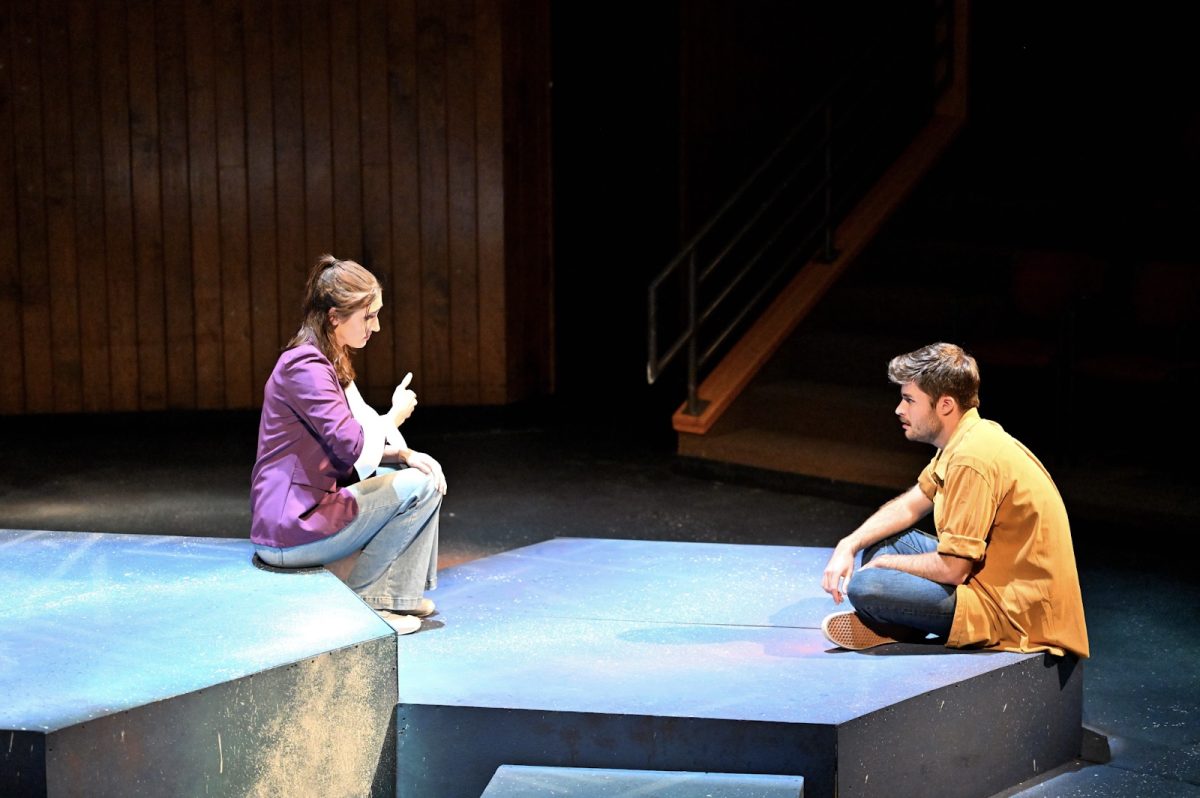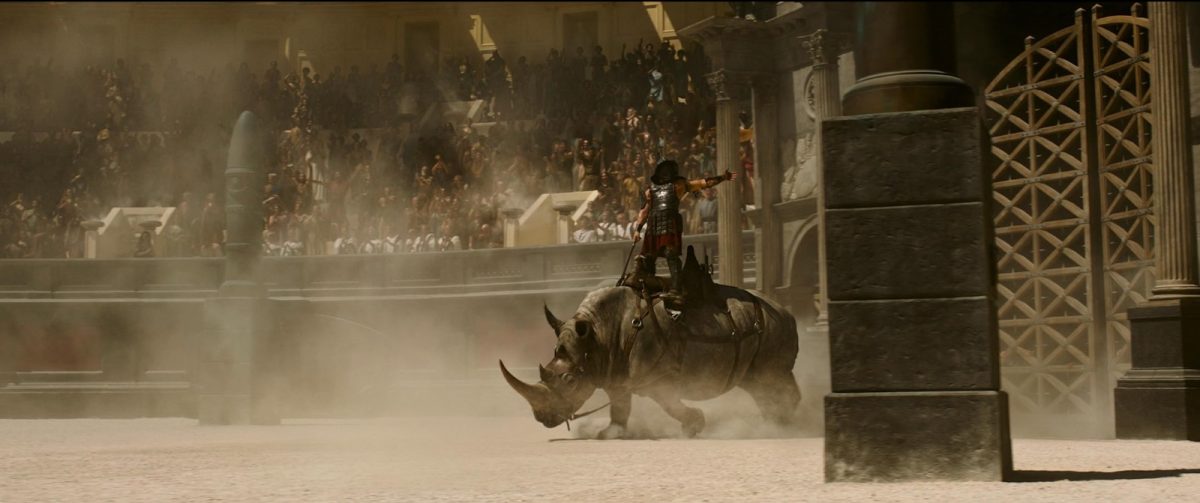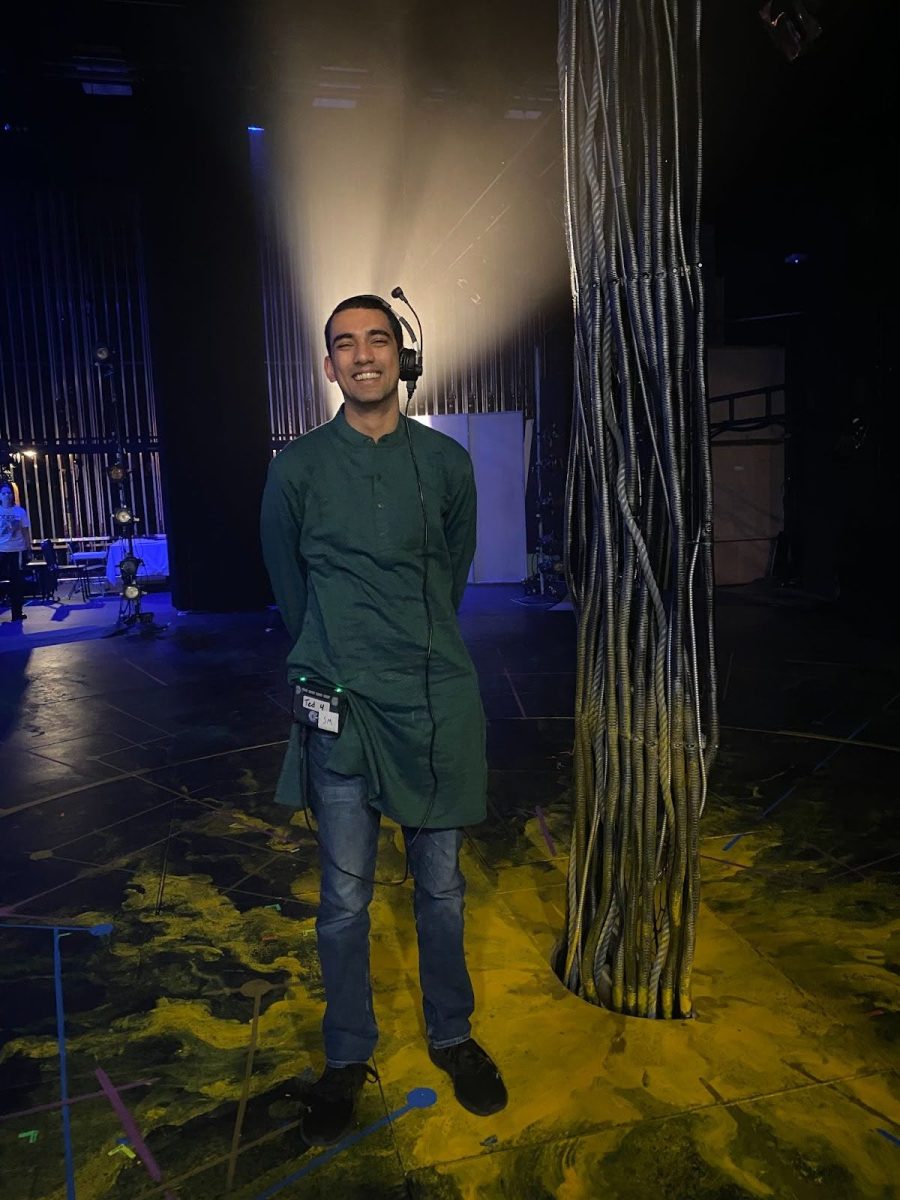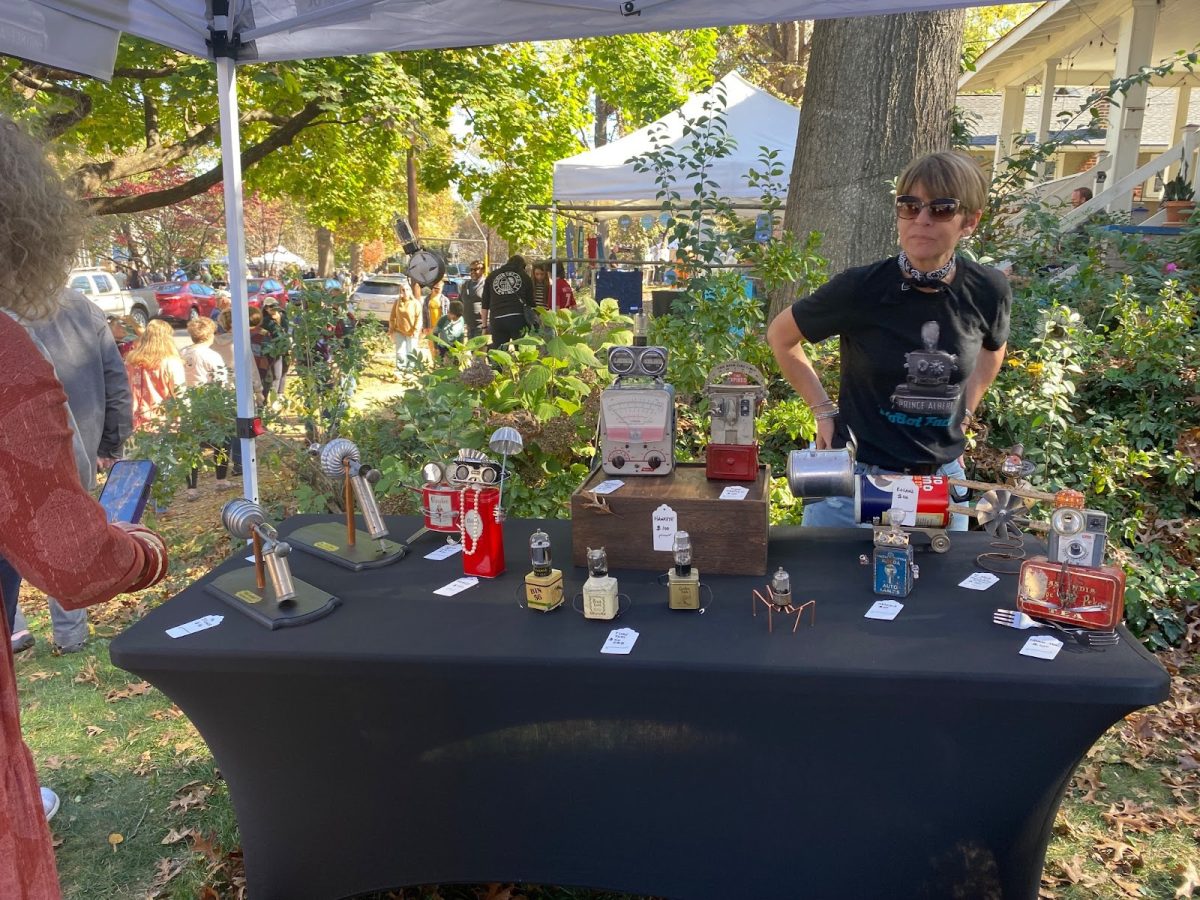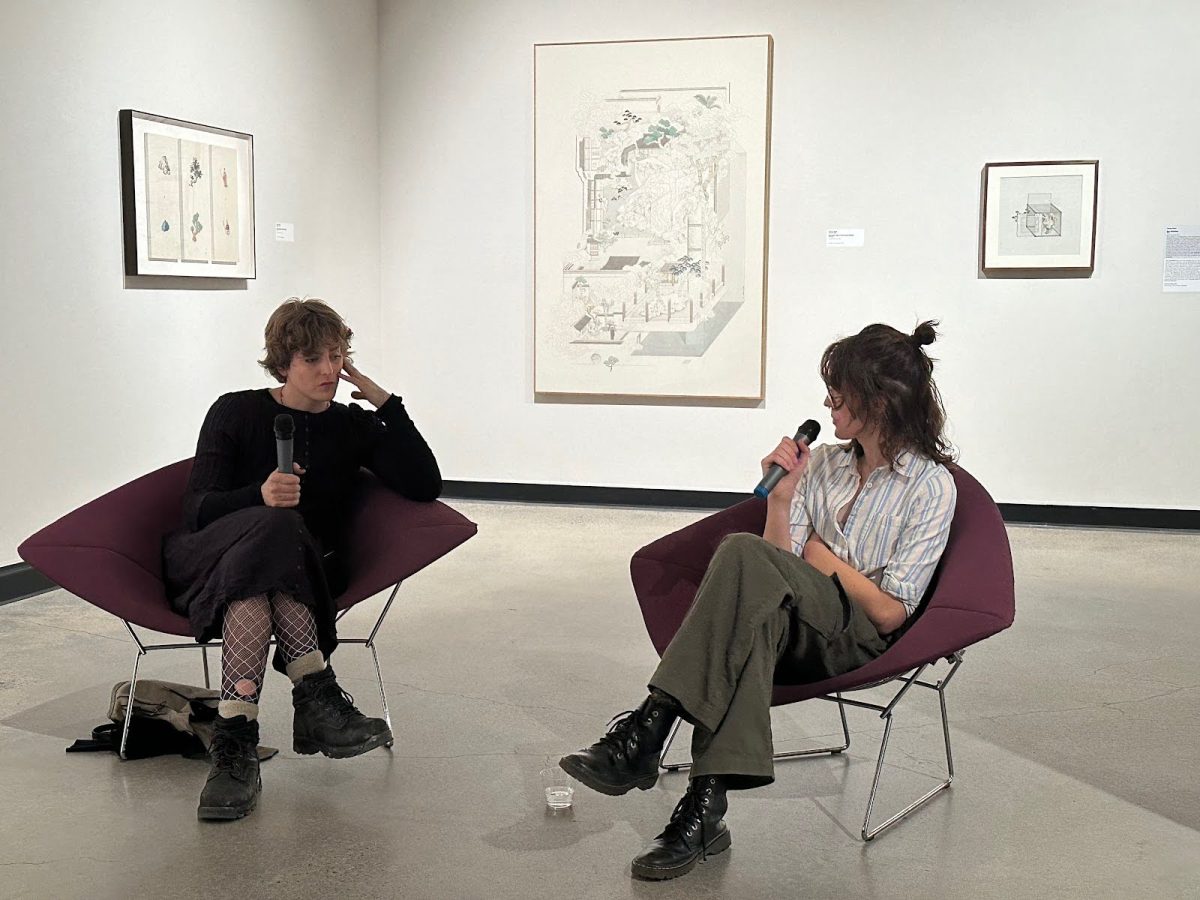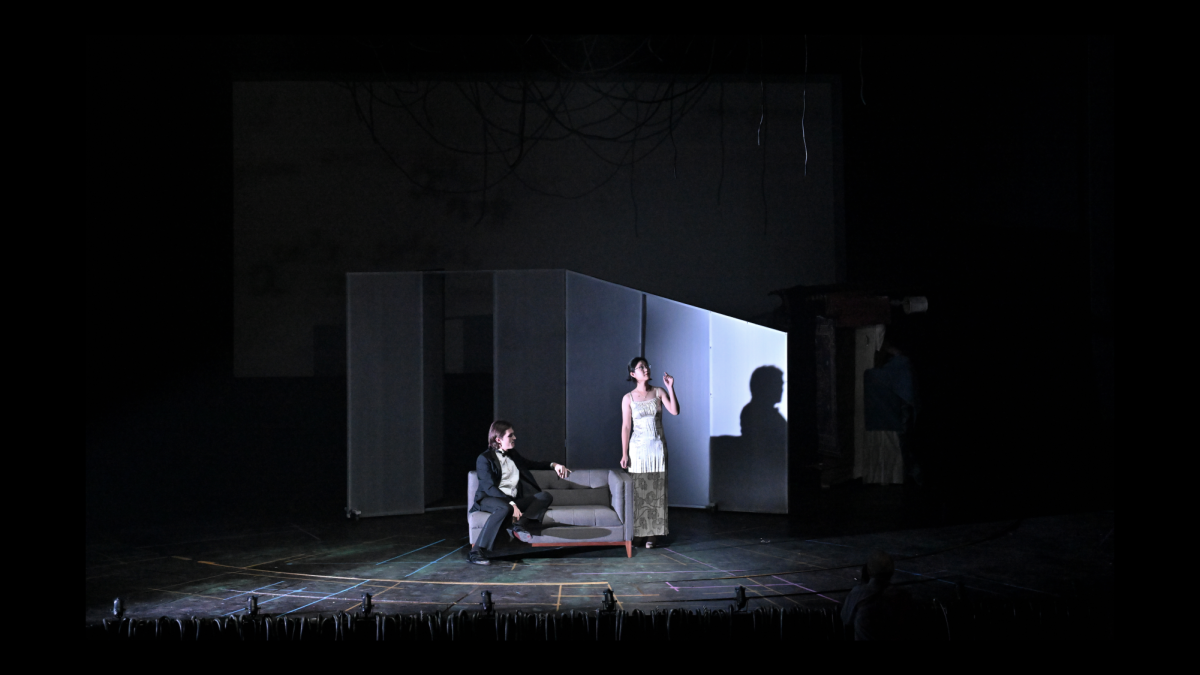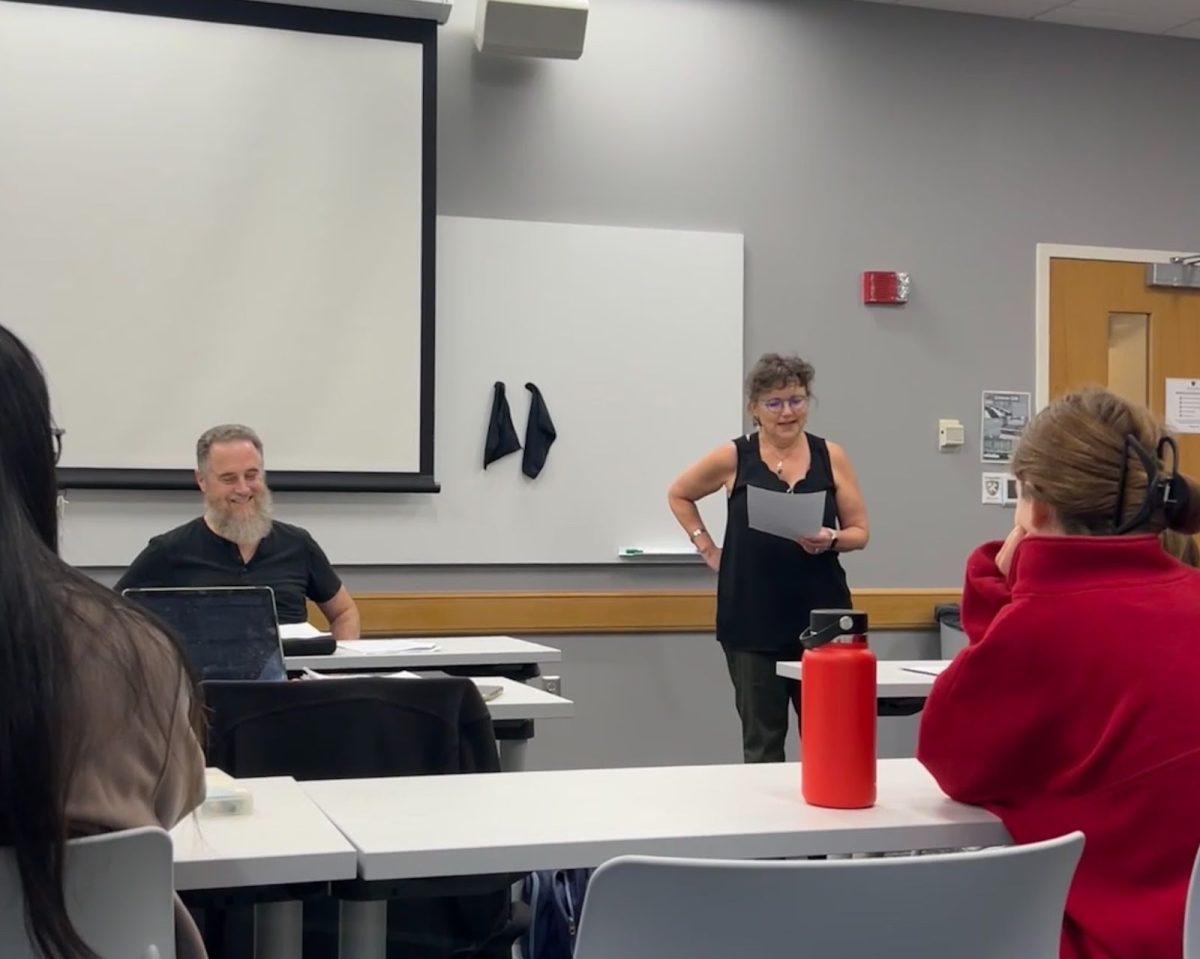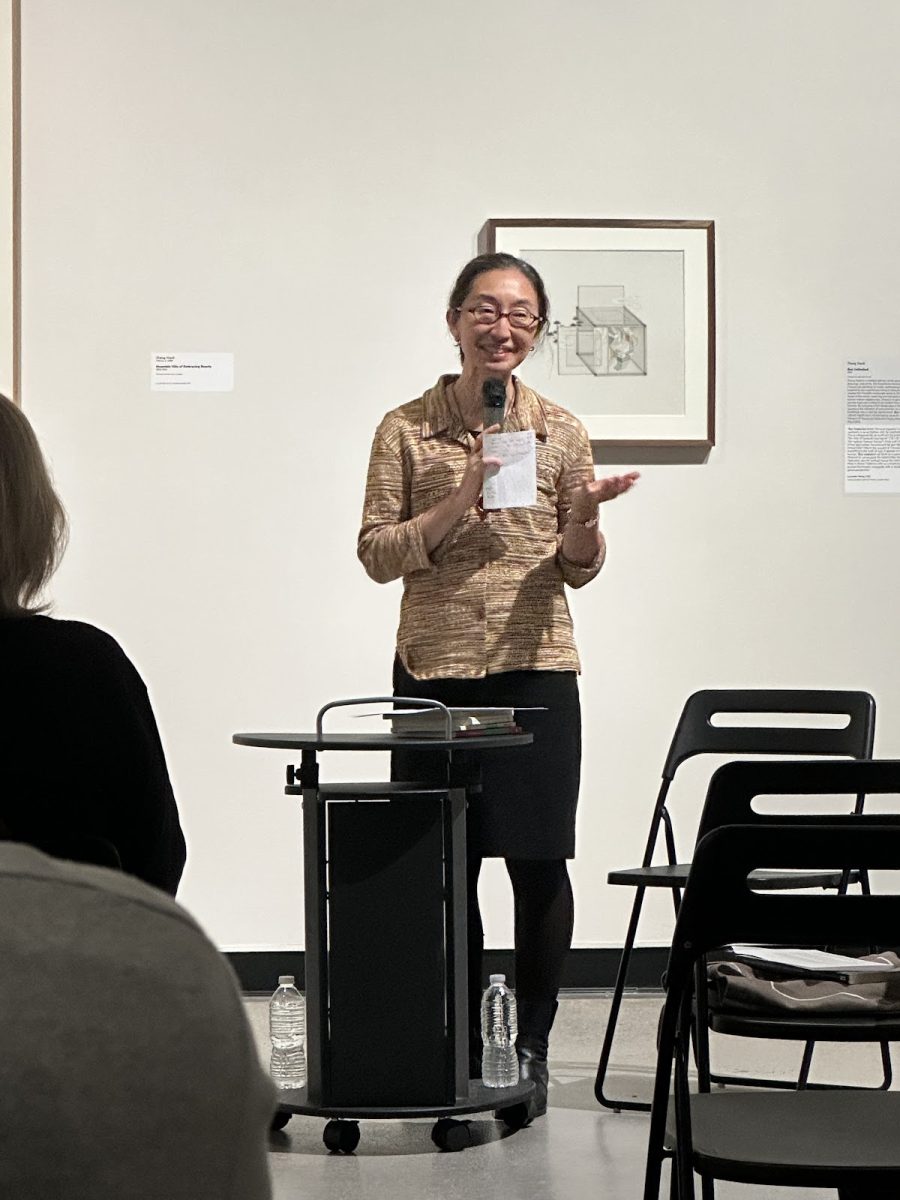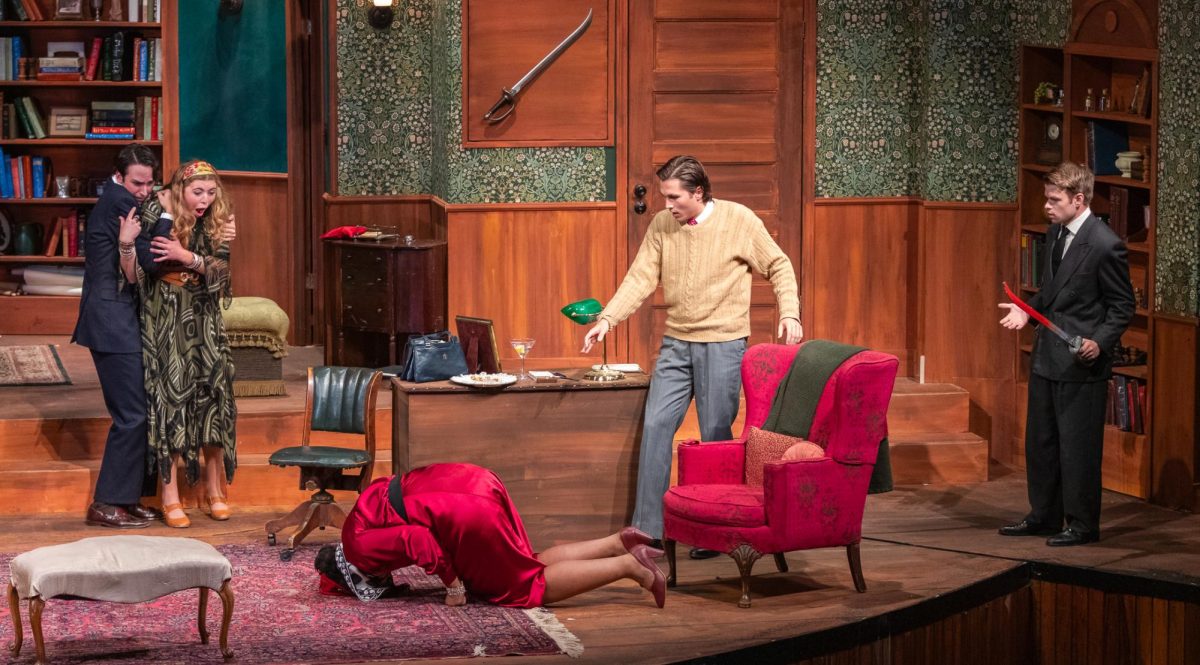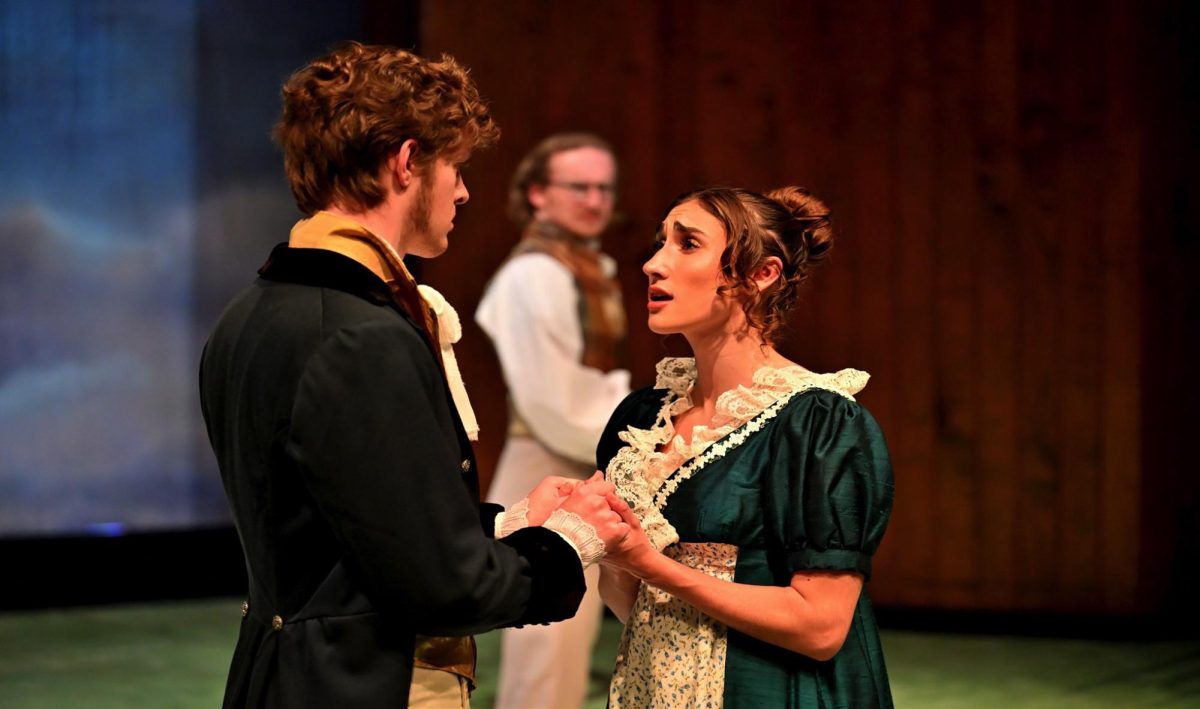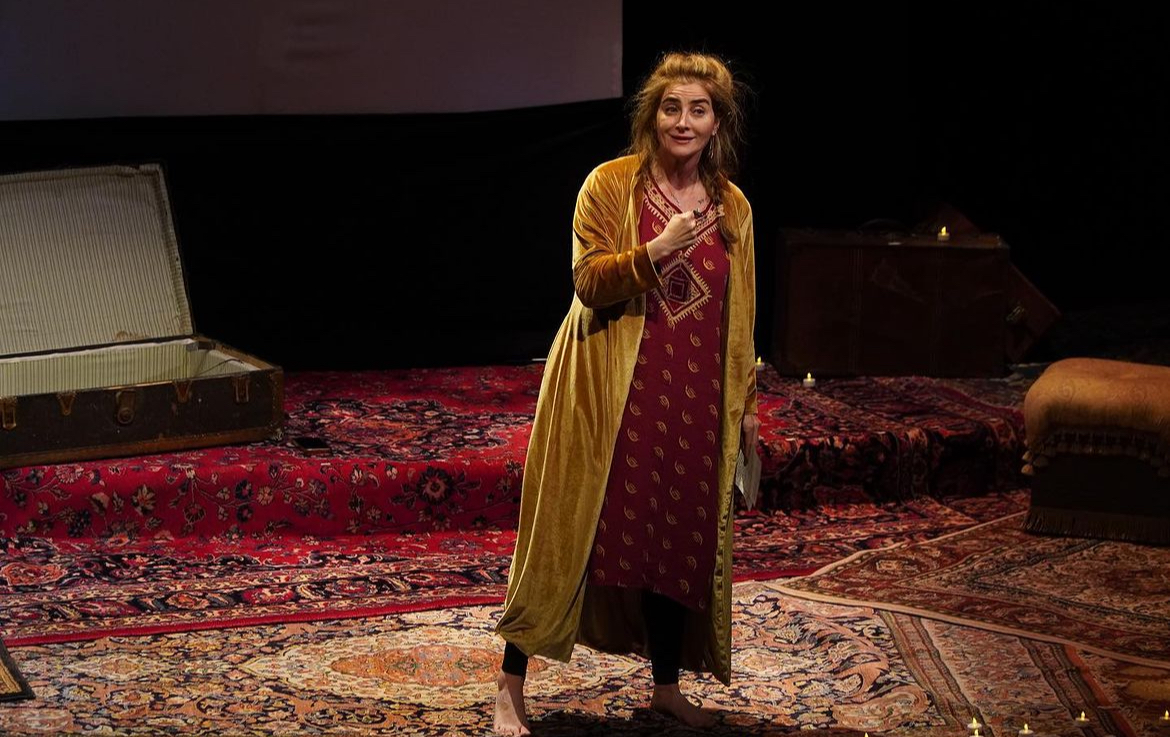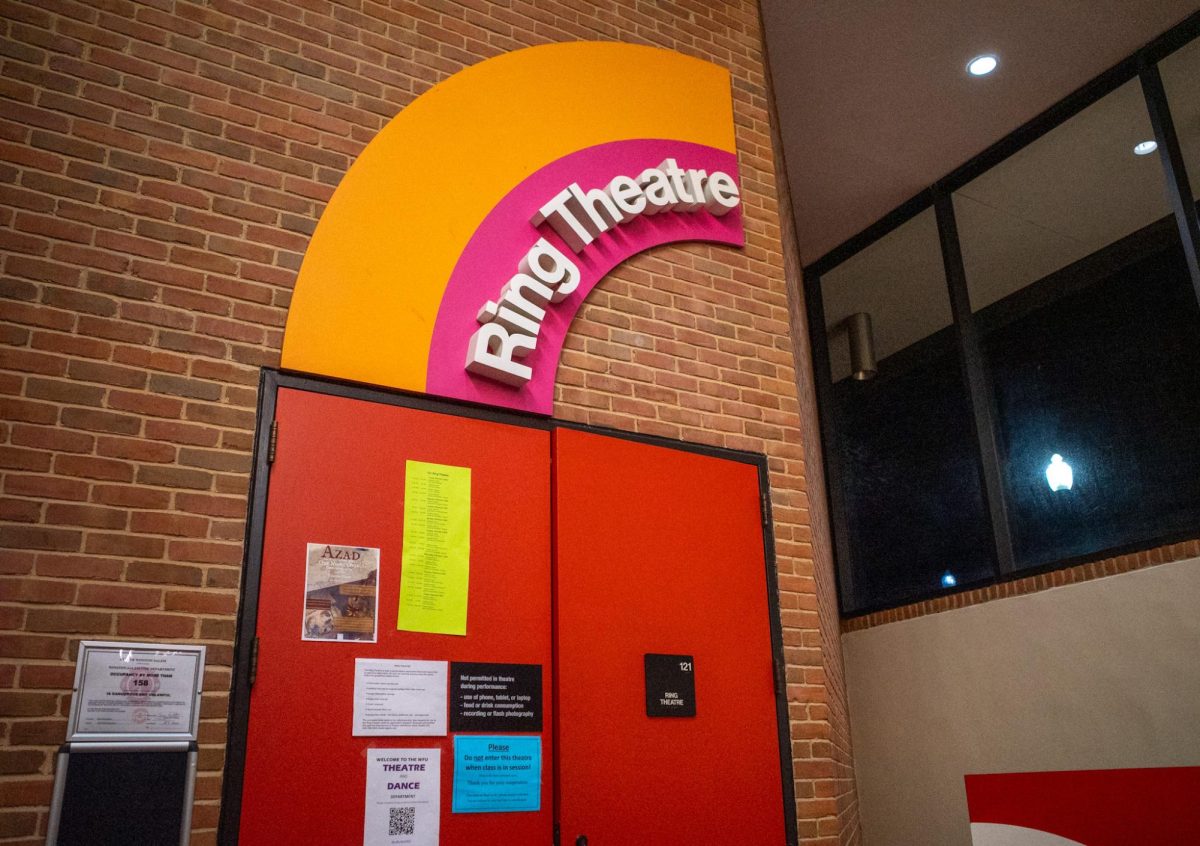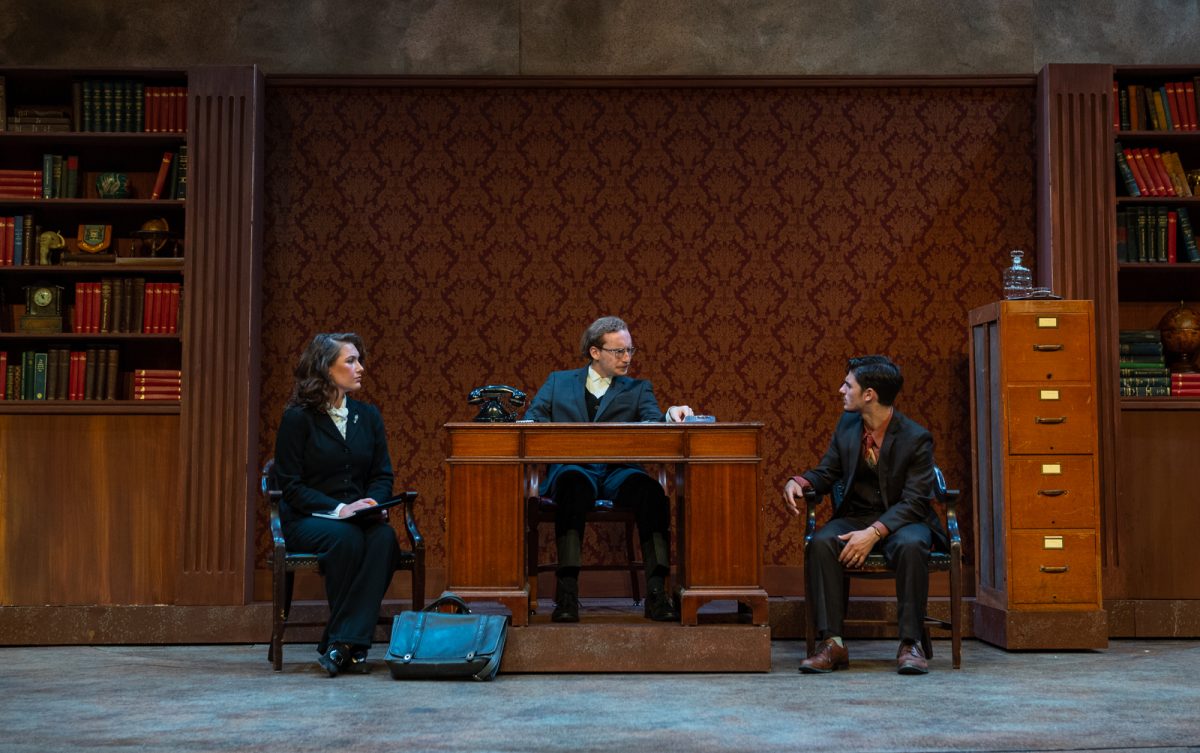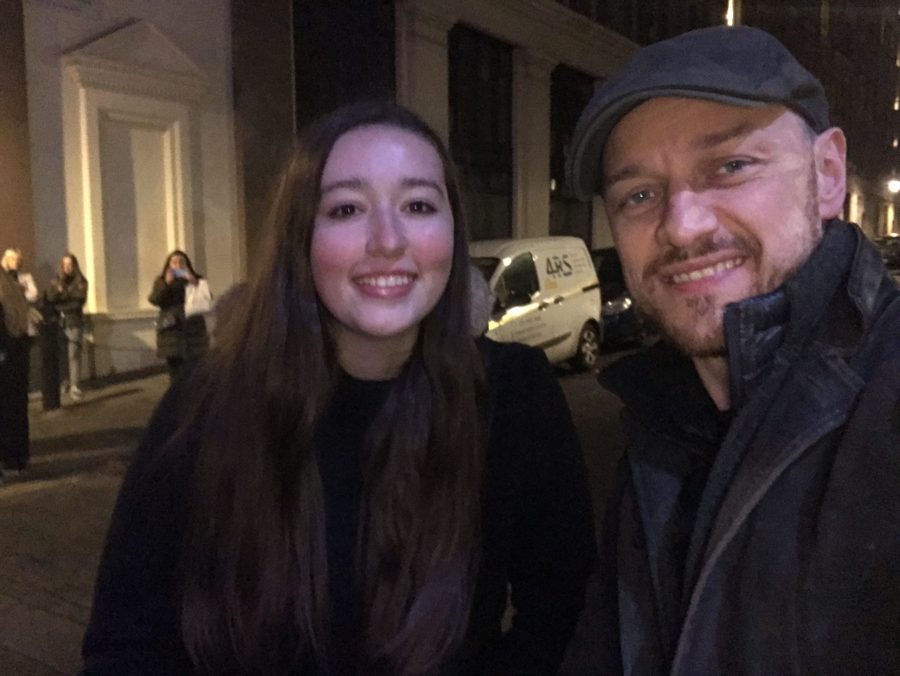What if you could see all of the different ways your life could turn out, depending on how you act in a given moment?
This is the premise of “Constellations,” a play written by Nick Payne and performed by the Anthony Aston Players, a student-run theatre organization at Wake Forest.
With only two characters and nothing on stage but two hexagonal platforms, the play appears simple at first. Senior Will Rothschild plays Roland, an affable beekeeper, and sophomore BG Cave plays Marianne, a brilliant physicist. Their story begins when they meet each other at a barbecue. Marianne opens with her signature pickup line, asking, “Do you know why it’s impossible to lick the tips of your elbows?” Roland might be interested, but he’s in a relationship, and promptly turns her down.
And then, after a flash, their story begins again.
In some universes, Marianne is the one in a relationship. Or one of them makes a joke that doesn’t land, or says something off-putting. In one of the timelines, Roland goes back to Marianne’s house, but then she turns him away at the doorstep. In another, she is a little too excited about him staying over. They never start seeing each other, or they start seeing each other and then stop. We return all the way to the beginning, at the barbecue. We eventually progress again to find a relationship with more gravity and commitment than we could have thought possible in the opening moments of the play.
This is how “Constellations” moves — it is sporadic and jarring at times, constantly jumping from one iteration of the characters’ stories to another, and sometimes back again. A moment of grieving is quickly replaced by a scene of joy and triumph. In a flash, genuine laughter is cut short.
For this reason alone, Rothschild’s and Cave’s acting assignments seemed particularly challenging, and their performances, in turn, impressive. Rothschild was able to establish with his beekeeper character a simpleminded, bubbly gregariousness that made the darker aspects of the character — Roland’s hidden temper, insecurities and infidelity — more intriguing and believable.
Cave, meanwhile, played into the quirkiness and instability of her character. Marianne came across as intense and driven, but ultimately unsure of herself and her future. I thought Cave handled the moments of foreshadowing especially well, inviting the audience to lean into the character’s uncertain fate without giving away too much.
As an audience, we can get an overarching picture of two individuals not by watching them progress and develop over time, but by seeing the similarities and differences in their multiple iterations. We see how much timing and luck influence every aspect of our life, and how much depends on contingency and chance. Amid all this chaos, we also see how agency can be created by what one chooses to think about and remember. In the chronology of the characters’ lives, the play ends on a devastating, somber note, but in the chronology of the play, we are treated to one of its most heartwarming, uplifting moments in the final scene. As death looms for Marianne, there remains the ability to sift through memories and move around in time, returning to a moment of pure love.
“Constellations” was expertly directed by senior Sarah Cadena, who wrote in her director’s note, “Every choice, every decision I’ve ever and never made, has led me to be the storyteller I am today.” As always, the Anthony Aston Players production, which ran from Nov. 15 to Nov. 17 at The Ring Theater, was a testimony to the wonderful things students can do when they are driven and passionate about their work.


